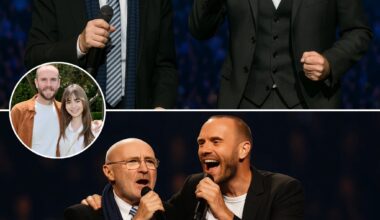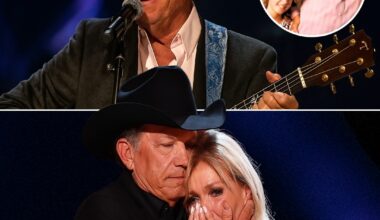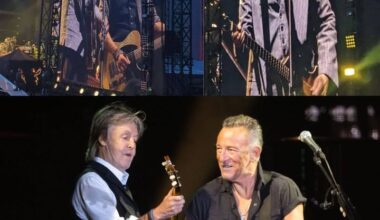On October 6, 2019, the Greek Theatre at UC Berkeley witnessed a generational passing of the torch that few expected and no one forgot. As part of her Norman Fucking Rockwell! Tour, pop-noir icon Lana Del Rey invited legendary folk singer Joan Baez to share the stage. What followed was a hauntingly intimate duet of Baez’s autobiographical anthem “Diamonds and Rust”, followed by Baez’s solo rendition of Bob Dylan’s “Don’t Think Twice, It’s All Right.”

The audience, already buzzing with anticipation, was visibly stunned when Baez walked on stage. Wearing her signature silver hair and quiet grace, the folk legend embraced Lana, then began to strum. “Diamonds and Rust,” a song penned by Baez about her turbulent romance with Bob Dylan, unfolded with delicate tension. Lana’s ethereal vocals blended with Baez’s lived-in tone, creating a performance that felt like two lifetimes meeting in one verse.
After the duet, Baez performed Dylan’s classic on her own—an understated but deeply emotional nod to the roots of folk storytelling. It wasn’t just a cover. It was a reclaiming of history, of pain, and of a voice that has remained unshaken for over half a century.

Baez, who had met with Lana prior to the show for dinner with their families, shared touching words about Lana’s humility and soul. “She’s the real deal,” Baez said, smiling softly to the crowd. “And she knows how to listen.”
![Lana Del Rey & Joan Baez - Diamonds & Rust + Don't Think Twice, It's Alright (Live in Berkeley) [4K]](https://i.ytimg.com/vi/SjGTLJLkJLA/maxresdefault.jpg)
The night marked a rare moment of continuity in popular music. Joan Baez, whose career helped shape protest and poetic music in the 1960s, stood beside a modern singer whose lyrics explore vulnerability, heartbreak, and quiet rebellion. Together, they didn’t just sing songs—they stitched together decades of musical lineage into a living, breathing memory.

In a tour known for surprise cameos, this performance in Berkeley stood apart. It wasn’t loud. It wasn’t flashy. But in the stillness after the final chord, you could hear something heavy hang in the air — not silence, but reverence.
A new voice, an old song, and a truth that still cuts as deeply as it did in 1975.
WATCH BELOW:





